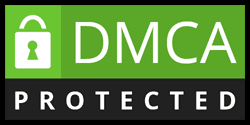In the ever-evolving world of beauty and skincare, aesthetician qualifications play a pivotal role in determining the quality of service provided to clients. An aesthetician is not just a beautician; they are trained professionals equipped with specialized knowledge about skin health, treatments, and the science behind skincare products. This comprehensive guide delves deep into the qualifications required to become an aesthetician and the various aspects that encompass this rewarding profession.
Table of Contents
ToggleThe Role of an Aesthetician in Skincare

Aestheticians occupy a unique and vital position within the beauty and wellness industry. They serve as bridges between clients and their skin’s needs, providing essential services that promote not only aesthetics but also overall skin health. This section examines the duties and responsibilities inherent in the aesthetician profession, the importance of their roles, and the distinctions between aestheticians, estheticians, and dermatologists.
Defining the Aesthetician Profession
To truly understand what it means to be an aesthetician, one must first explore the foundational aspects of this profession.
An aesthetician primarily focuses on skincare and beauty treatments. Their responsibilities often include performing facials, chemical peels, microdermabrasion, and various hair removal techniques like waxing and threading. Beyond these technical skills, aestheticians also offer consultations to provide personalized advice on skincare regimens tailored to individual client needs. By understanding different skin types and conditions, they can recommend appropriate products and treatments to enhance skin health.
The role of an aesthetician goes beyond mere surface-level beauty. They work closely with their clients to assess skin conditions, educate them on proper skincare practices, and contribute to their overall self-confidence. Additionally, many aestheticians educate clients about the effects of lifestyle choices, such as diet and sun exposure, on skin health, empowering individuals to take charge of their skin well-being.
Understanding the distinction between related professions is crucial for anyone interested in pursuing aesthetician qualifications. While aestheticians focus on cosmetic treatments and skincare, estheticians may have a more general approach that encompasses a broader range of beauty services without the same depth of skincare knowledge. Dermatologists, on the other hand, are medical doctors specializing in skin diseases and disorders, enabling them to diagnose and treat more complex skin issues.
Importance of Aestheticians in the Beauty and Wellness Industry
The significance of aestheticians in today’s society cannot be overstated. In a world where appearance can significantly impact personal and professional opportunities, the demand for skilled aestheticians has surged. As people become more aware of the importance of skincare, the industry has expanded, leading to an increase in aesthetic clinics, spas, and wellness centers.
Aestheticians play a key role in helping clients achieve healthy, radiant skin, which boosts their self-esteem and mental well-being. Furthermore, they advocate for self-care and promote the idea that investing time and resources into skincare is not merely a luxury, but a necessity for overall health.
In addition to enhancing individual confidence, aestheticians contribute to the economic growth of the beauty and wellness industry. They create jobs, support local businesses, and participate in the broader health narrative by promoting preventive care and holistic approaches to wellness.
Differences Between Aestheticians, Estheticians, and Dermatologists
Navigating the world of skincare professionals can be confusing, especially with overlapping terms like “aesthetician,” “esthetician,” and “dermatologist.” While some may use these terms interchangeably, understanding their differences is crucial for prospective clients and aspiring professionals alike.
Aestheticians generally focus on cosmetic treatments and skincare education. They often work in cosmetic and spa settings, providing services tailored to enhance a client’s appearance and overall skin health. Their training equips them to perform non-invasive procedures and recommend suitable products based on individual skin types.
Estheticians, while similar to aestheticians, may have a broader scope that includes basic beauty treatments such as makeup application or nail care. However, they do not possess the same level of expertise in skincare that aestheticians do, focusing instead on delivering a more generalized beauty experience.
Dermatologists, conversely, are licensed medical doctors who specialize in diagnosing and treating skin conditions and diseases. They have in-depth medical training and can prescribe medications, perform surgical procedures, and diagnose serious skin ailments. Individuals looking for treatment of specific skin issues, such as acne or eczema, should consult a dermatologist rather than an aesthetician.
Understanding these distinctions is critical for both clients seeking the right type of care and those considering a career in skincare. Ultimately, each professional fulfills a unique role within the beauty and wellness landscape, contributing to the diverse needs and demands of clients.
Educational Pathways to Becoming an Aesthetician

Embarking on a career as an aesthetician requires a commitment to education and training. The journey involves understanding the various educational pathways available, the types of programs offered, and the importance of choosing accredited institutions. This section explores these avenues in detail, offering insights into what aspiring aestheticians can expect.
Required Educational Qualifications
Before diving into aesthetician programs, it’s essential to comprehend the foundational educational requirements. Typically, candidates must possess a high school diploma or equivalent to enroll in aesthetician training programs. This initial qualification sets the stage for further learning and specialization.
Once accepted into a program, students can expect to cover a wide array of topics, including skin anatomy, physiology, chemistry, product ingredients, sanitation practices, and various treatment techniques. Many programs also incorporate hands-on training, allowing students to gain practical experience under the guidance of experienced instructors.
Beyond the core curriculum, aspiring aestheticians should seek additional opportunities to enhance their knowledge. Attending workshops, conferences, and seminars can deepen understanding and keep professionals updated on the latest trends and advancements in skincare.
Types of Programs Available
When it comes to aesthetician training, there is no one-size-fits-all approach. Various programs cater to different interests and career goals. These include certificate programs, diploma programs, and degree programs.
Certificate programs typically offer a condensed overview of essential topics and can often be completed in a shorter timeframe than other options. These programs are ideal for those looking to quickly enter the workforce with fundamental skills.
Diploma programs tend to cover a more comprehensive curriculum, incorporating both theoretical knowledge and practical training. They usually span several months to a year, allowing students to develop a deeper understanding of skincare principles and techniques.
Degree programs, although less common in aesthetics, provide an advanced level of education and may include broader coursework in health sciences and business management. These programs are suited for individuals seeking leadership roles or specialized positions within the field.
Regardless of the path chosen, aspiring aestheticians should ensure that their program is accredited. Accreditation ensures that the institution meets specific standards of quality and provides graduates with a recognized qualification, ultimately enhancing employability.
Importance of Accredited Schools and Training Programs
Choosing an accredited school or training program is paramount for anyone entering the aesthetician profession. Accreditation signifies that the program meets established educational standards, ensuring students receive quality training that prepares them for a successful career.
Attending an accredited institution not only increases the likelihood of acquiring in-depth knowledge and practical skills but also provides access to valuable networking opportunities. Accredited schools often have connections with industry professionals, facilitators, and potential employers who can help students secure internships or job placements upon graduation.
Moreover, many states require aesthetician applicants to complete their training at an accredited institution to qualify for licensure. This requirement reinforces the importance of thorough research before selecting an aesthetician program. Aspiring professionals should leverage online reviews, testimonials, and accreditations to make informed decisions about their educational journeys.
Licensing and Certification Requirements

After completing their education, aspiring aestheticians must navigate the licensing and certification landscape to practice legally. Each state has its own rules governing aesthetician licensure, making it crucial for candidates to familiarize themselves with the specific requirements in their location. This section outlines the licensing process, national certification options, and the significance of continuing education.
Overview of State-Specific Licensing Requirements
Licensing requirements for aestheticians vary from state to state, reflecting local regulations and standards. Generally, candidates must pass a written exam and a practical skills evaluation to obtain their license. These assessments ensure that individuals possess the necessary knowledge and skills to provide safe and effective skincare services.
In addition to passing exams, many states mandate a specific number of hours of training, ranging from several hundred to over a thousand hours. Prospective aestheticians should carefully review their state’s requirements to ensure compliance and avoid any delays in securing their licenses.
It’s important to note that some states have different classifications for aesthetician licenses, such as medical aestheticians, who may require additional training and certification to perform advanced skincare procedures in clinical settings.
National Certification Options and Their Significance
In addition to state licensure, aestheticians may choose to pursue national certifications from organizations such as the National Coalition of Estheticians Association (NCEA) or the American Association of Cosmetology Schools (AACS). While not mandatory, obtaining national certification can enhance credibility and demonstrate a commitment to professional excellence.
National certification often involves meeting specific education and experience criteria, as well as passing a comprehensive examination. Achieving this designation can open doors to increased job opportunities, higher earning potential, and greater recognition within the industry.
Moreover, many employers prefer hiring certified aestheticians, as it signals a dedication to ongoing education and adherence to industry standards. For those aspiring to specialize in medical aesthetics or advanced skincare treatments, national certification can be especially beneficial.
Continuing Education and Renewal of Licenses
The beauty and skincare industry is constantly evolving, with new techniques, products, and trends emerging regularly. To remain competitive and knowledgeable, aestheticians must engage in continuing education throughout their careers. Many states require licensed aestheticians to complete a designated number of continuing education hours every few years to renew their licenses.
Continuing education courses cover a wide range of topics, including advanced skincare techniques, product knowledge, and business management strategies. Participating in these courses helps aestheticians stay informed about the latest innovations and best practices in the field, ultimately benefiting their clients.
Furthermore, continuous learning fosters professional growth and development, allowing aestheticians to expand their skill sets and adapt to changing client demands. This proactive approach not only enhances career prospects but also demonstrates a commitment to providing the highest quality of care.
Essential Skills for Successful Aestheticians

While formal education and training lay the foundation for a successful career as an aesthetician, certain essential skills can significantly enhance effectiveness and client satisfaction. This section explores the key technical skills, interpersonal abilities, and business acumen that contribute to success in the aesthetician profession.
Key Technical Skills in Skincare Treatments
Technical expertise forms the backbone of an aesthetician’s profession. Aesthetician qualifications encompass mastery over a range of skincare treatments, such as facials, chemical peels, microdermabrasion, and other advanced techniques essential for effective client care.
Understanding skin anatomy and physiology is a critical aspect of these qualifications. This knowledge enables aestheticians to customize treatments, selecting appropriate products and methods to address issues like acne, aging, or hyperpigmentation effectively.
Proficiency in sanitation and safety protocols is another vital component of aesthetician qualifications. Maintaining high hygiene standards protects clients from potential infections and ensures a safe, professional environment during procedures. These practices reflect the commitment of aestheticians to both client well-being and industry professionalism.
Interpersonal Skills and Client Communication
Beyond technical skills, interpersonal abilities are integral to an aesthetician’s success. Building trust and fostering a welcoming environment during treatments is essential for client satisfaction. Effective communication, an often-underestimated aesthetician qualification, allows professionals to understand client needs, preferences, and concerns comprehensively.
Active listening plays a pivotal role here. Aestheticians must attentively consider client feedback to tailor treatments that align with their expectations. Empathy and approachability contribute to creating a positive client experience, increasing the likelihood of repeat visits and referrals.
Educating clients is another critical skill for an aesthetician. By explaining procedures, expected outcomes, and aftercare instructions clearly, professionals empower clients to make informed decisions about their skincare routines, enhancing the overall experience and results.
Business Acumen for Freelance and Spa-Based Aestheticians
Business skills are an increasingly valuable part of aesthetician qualifications, particularly for those pursuing freelance careers or working in spas and clinics.
Independent aestheticians must be adept in marketing, pricing strategies, and client retention. Establishing a strong presence on social media and networking platforms can attract new clients and sustain relationships with existing ones.
For those employed in spas or clinics, understanding operational aspects such as inventory management, scheduling, and payment systems is equally important. Collaborative efforts with colleagues and management contribute to seamless service delivery and a harmonious workplace environment.
Achieving Professional Excellence
A balance of technical expertise, interpersonal skills, and business savvy forms the foundation of a successful career in aesthetics. Aesthetician qualifications extend beyond certifications—they encompass a commitment to continuous learning, adaptability, and a client-centered approach.
By excelling in these areas, aestheticians position themselves to thrive in a competitive industry, achieving both professional fulfillment and client satisfaction.
Career Advancement Opportunities in Aesthetics
The field of aesthetics provides a wealth of opportunities for career growth, with pathways tailored to various interests and goals. Whether focusing on aesthetician qualifications, exploring diverse career paths, or building a robust professional network, aestheticians have numerous ways to shape their professional journeys. This section explores the avenues for advancing within the aesthetics industry.
Specializations Within the Field
A key way to enhance your career is by focusing on specific aesthetician qualifications and specializations. Popular areas include medical aesthetics, spa management, makeup artistry, and product development.
For those pursuing medical aesthetics, earning advanced aesthetician qualifications allows professionals to work alongside dermatologists or plastic surgeons, offering pre- and post-operative care, laser treatments, and other advanced therapies. Additional certifications in this area can open doors to a more clinical and rewarding practice.
Spa management is another pathway that combines aesthetics expertise with leadership. Aestheticians with strong qualifications in both skincare and business can transition into roles overseeing operations, staff training, and client relations, blending strategic thinking with hands-on practice.
Makeup artistry appeals to aestheticians with a creative streak. Building on foundational aesthetician qualifications, professionals in this field can collaborate with photographers, fashion designers, and other creatives to produce stunning results.
Potential Career Paths and Industries
With solid aesthetician qualifications, professionals can explore diverse career paths in salons, spas, medical facilities, and beyond. Working in day spas is a common starting point, but many aestheticians expand into medical spas, where their qualifications are crucial for delivering advanced treatments.
Retail positions with major skincare brands are also lucrative, allowing aestheticians to utilize their qualifications to educate clients about products. Many aestheticians go on to become trainers, brand ambassadors, or consultants, sharing their expertise on a larger platform.
Aestheticians with entrepreneurial ambitions can even leverage their qualifications to create their own skincare products or open their businesses, offering customized services tailored to specific client needs.
Importance of Networking and Professional Organizations
Networking plays a vital role in leveraging aesthetician qualifications for career advancement. Connecting with professionals, mentors, and industry leaders can lead to exciting collaborations and opportunities.
Joining organizations like the Society of Plastic Surgical Skin Care Specialists or Associated Skin Care Professionals can help aestheticians enhance their qualifications and stay updated on industry trends. These associations provide educational resources, certifications, and access to networking events that are instrumental for growth.
Industry conferences and trade shows are equally valuable, offering aestheticians insights into new products, techniques, and market trends. Engaging in these events allows professionals to showcase their qualifications, build connections, and inspire innovation within their careers.
Online communities and social media platforms are also excellent tools for sharing insights, learning from peers, and staying informed. The collaborative nature of the aesthetics field ensures that aesthetician qualifications, when combined with a strong network, can lead to boundless opportunities for growth and innovation.
By building on their aesthetician qualifications and actively engaging with the industry, professionals can unlock numerous possibilities for personal and professional advancement in the dynamic world of aesthetics.
Conclusion

In conclusion, the aesthetician profession is multifaceted, requiring a blend of educational qualifications, technical expertise, interpersonal skills, and business acumen. Aesthetician qualifications not only define the standards of practice within the field but also play a crucial role in shaping individuals’ careers and the overall client experience.
Aspiring aestheticians are encouraged to pursue proper education and training, emphasizing the importance of accreditation and continuing education. With countless avenues for specialization and career advancement, those who embrace the journey will undoubtedly find fulfillment and success in the dynamic world of skincare and beauty.
As the industry continues to evolve, the demand for skilled aestheticians remains steadfast. By cultivating a passion for skincare, investing in education, and building meaningful connections, aspiring professionals can carve out their unique paths and make a lasting impact in the lives of their clients.
Contact us via other platforms if you have any questions or requests that need to be answered quickly.
Tiktok: www.tiktok.com/@lunabeautyacademy6
Hotline: 034 254 0228
Email: lunabeautyacademy@gmail.com
Address: No. 29, Alley 140/1/2, Lane 140 Nguyen Xien, Thanh Xuan, Hanoi
Luna wishes you success and hopes you will have the best experiences at the academy. If you need advice or answers about anything, please leave your Contact Information With Us, the Luna team will contact you soon. Thank you for reading this article


















